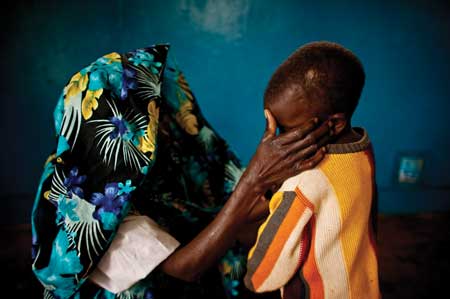 By Karen Haller, PhD, RN
By Karen Haller, PhD, RN
VP of Nursing and Patient Care Services,
Johns Hopkins Hospital
Losing a family member or a friend is one of life’s most difficult experiences, and nurses often bear witness to the deaths of our patients and the losses of their families. We’ve relied on our instincts about what to do, what to say, and how to help. We’ve learned from experience what comforts and what assists.
Now, thanks to Dana Moore, a clinical nurse specialist in the Medical Intensive Care Unit, Hopkins’ nurses have a resource to offer patients. Moore and other experienced nurses gathered their collective wisdom and published a bereavement booklet, titled simply, “When a Loved One Dies.”
The booklet acknowledges the emotional confusion that follows someone’s death, but moves the family and friends toward the important decisions that must be made in a very short time. The first chapter answers the question so often posed to nurses by loved ones: “What do we do now?” It discusses whom to notify; reminds families that they may have other immediate personal responsibilities, such as picking up children; asks about being an organ or tissue donor; and perhaps most important, offers the family the opportunity to call back to the nursing unit if they have questions later.
The booklet provides information on understanding grief, ranging from shock, numbness, and disbelief, to anger, guilt, depression, and eventual acceptance. There are resources listed for families who may need direction to find helpful books or regional support groups.
Each booklet also comes with a sympathy card for the unit’s use later in expressing their sympathy and sending their condolences. The card helps us find the words that may be difficult when we, the caregivers, are also grieving.
| Within our hearts, the ones we love are never really gone. In spirit and memory, they live on. May the support of your family and friends and the members of your Johns Hopkins health care team bring you comfort, and may loving memories heal your heart.—The Johns Hopkins Hospital Staff |
 Wide World of Research
Wide World of Research The Integration of Social Justice within the MSN (Entry into Nursing) Curriculum
The Integration of Social Justice within the MSN (Entry into Nursing) Curriculum A Little (Egg)stra Fun
A Little (Egg)stra Fun







